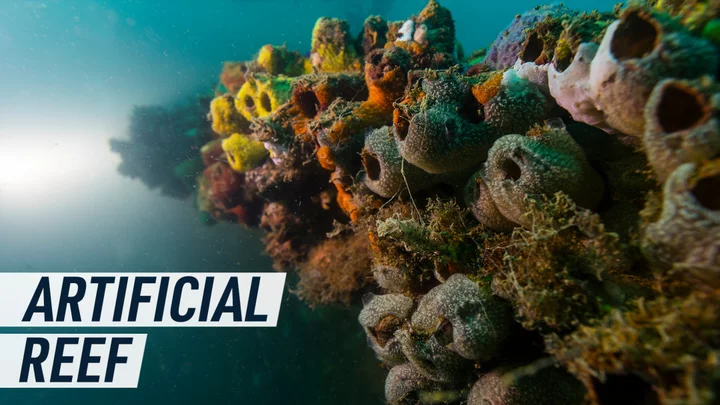Since 1950, we have lost half of our oceans' coral reefs. As sea temperatures rise due to the relentless burning of fossil fuels, endangering the fragile marine ecosystems, scientists are urgently looking for solutions.
One example is located off the coast in southern Texas. It's a giant 2.5-square mile artificial reef comprised of intentionally sunken vessels, concrete rail ties, and cinder block, which aims to sequester carbon while providing habitat for marine species. The project was created by scientists at the University of Texas Rio Grande Valley and supported by non-profit Friends of RGV Reef. It also received funding from Canadian oil giant Enbridge which, while investing in some environmental projects, has continued to emit millions of tonnes of greenhouse gases each year, build pipelines endangering both the planet and Indigenous communities and, as reported by the Guardian in 2021, worked with police to crackdown on protesters opposing the building of Line 3 in Minnesota.
The research team behind the artificial reef is trying to determine whether the human-made construction can be successful at carbon capturing and sequestration. Though the study just completed the first part of its two-year investigation, results are already encouraging: the team has found that the reef is, in fact, sequestering carbon. What's left to establish is whether the amounts captured are sufficient to make a significant impact.
With an estimated 25 percent of marine species living in and around coral reefs, the underwater ecosystems have been deemed "the rainforests of the seas." Though recently there have been encouraging discoveries of coral reefs untouched by humans, a lot more work still needs to be done to ensure their preservation. And yes, cutting down carbon emissions is number one on the list.









